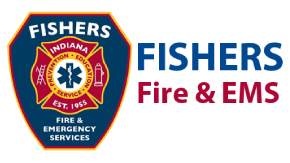Case Study: Healthier Patients at Home
Provider:
Fishers Fire and Emergency Services Department
Firefighters, EMTs, and paramedics providing emergency medical services to more than 80,000 residents in Fishers, Indiana

Challenge:
Promoting Prevention and Post-Discharge Care
As a growing community northeast of Indianapolis, Indiana, the town of Fishers faces many of the same healthcare challenges as the rest of the country: an aging population of Baby Boomers, escalating chronic disease, and a healthcare system bent on cost-cutting—while improving care.
It’s a challenge for every community, but it’s also an opportunity for emergency service providers like Fishers Fire and Emergency. Their WeCare Community Paramedicine program, now in its third year, is focused on providing in-home patient assessments as well as resources and preventive services to residents of Fishers—especially those at greatest risk of needing emergency care.
EMS Chief Steve Davison, who heads WeCare, sees it as yet another way the department can provide value in the community. “Our role is going to be to catch those people that are not covered by normal home health care,” he said.
Solution:
HealthCall for Post-Discharge Patients
Managing each patient’s history, medication, and care plan looked like a big challenge. Lt. Josh Mehling, who manages the technical side of the WeCare program, considered several software solutions but found nothing that would provide all the necessary features. “I was almost at the point of using an Excel spreadsheet with a security system over it,” Mehling said. “Then I spoke to a colleague who was using HealthCall.”
Patients who opt for the WeCare program are contacted to set up an initial home visit, usually within 24 hours of discharge from the hospital. WeCare staff meet with the patient, check vitals, and do an assessment, a medication reconciliation, and a home safety check. They review the doctor’s orders and the patient’s dietary plan, as well as educational materials about beneficial lifestyle changes. And they prep the patient for the follow-up calls they’ll be receiving—primarily from HealthCall’s automated system.
Results:
Improved Patient Adherence and Well Being
An initial analysis of patients within their high-risk post-discharge program showed a significant reduction in readmission rates.
- 7.14% were readmitted within thirty days, a reduction of 59.2% compared to the national all-cause readmission rate of 17.5%. The population was comprised of both male and female (57.1%, 42.9%) with multiple comorbidities.
According to Mehling, the HealthCall platform has allowed them to improve patient adherence and catch problems early, before patients need emergency care. It has also allowed them to catch medication errors and exacerbations of CHF that patients could manage through simple behavioral adjustments, rather than visiting the emergency room.
